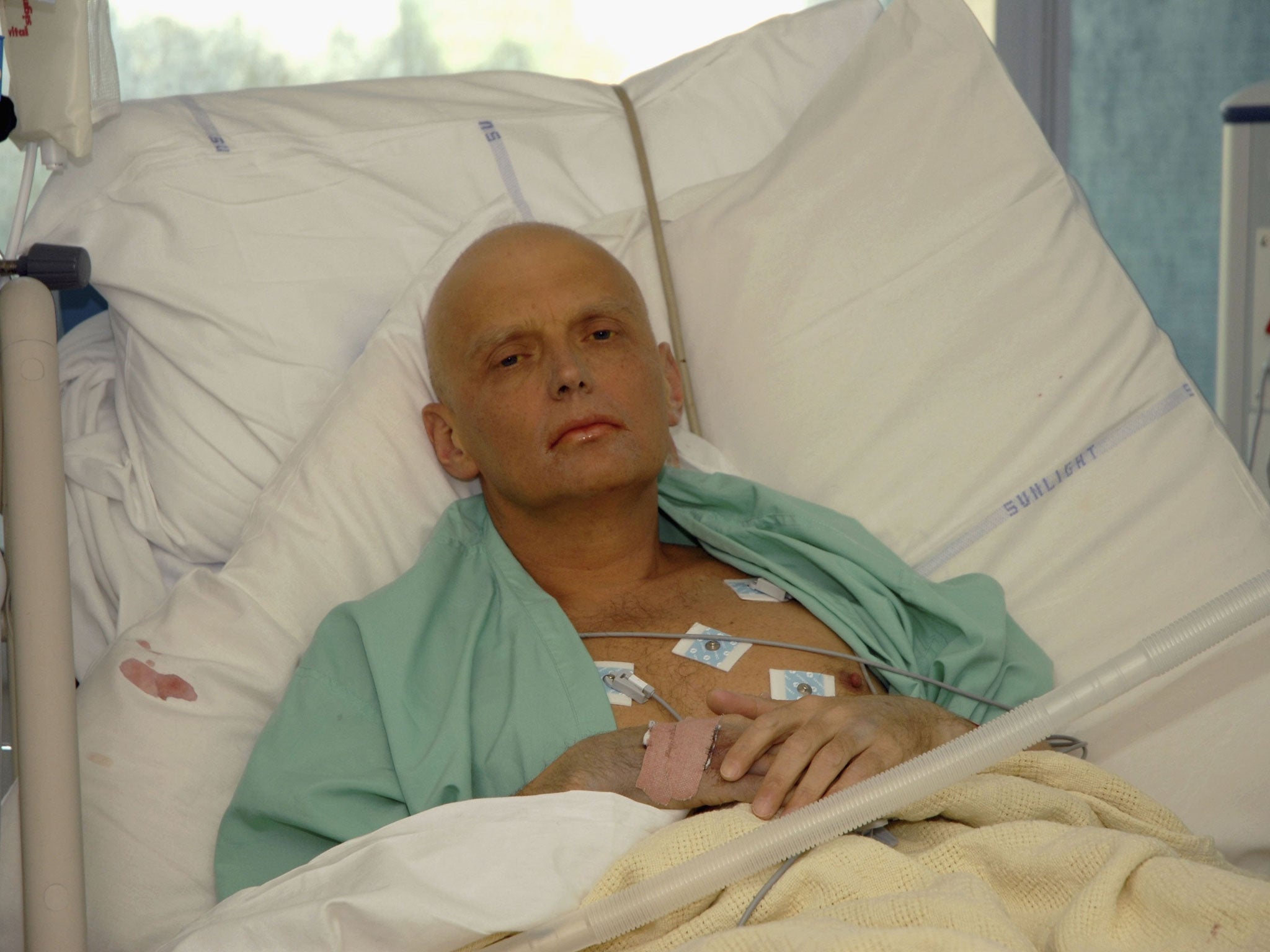Alexander Litvinenko case: Coroner will not consider Russian involvement in his death

Your support helps us to tell the story
From reproductive rights to climate change to Big Tech, The Independent is on the ground when the story is developing. Whether it's investigating the financials of Elon Musk's pro-Trump PAC or producing our latest documentary, 'The A Word', which shines a light on the American women fighting for reproductive rights, we know how important it is to parse out the facts from the messaging.
At such a critical moment in US history, we need reporters on the ground. Your donation allows us to keep sending journalists to speak to both sides of the story.
The Independent is trusted by Americans across the entire political spectrum. And unlike many other quality news outlets, we choose not to lock Americans out of our reporting and analysis with paywalls. We believe quality journalism should be available to everyone, paid for by those who can afford it.
Your support makes all the difference.The British coroner examining the death of an ex-KGB officer Alexander Litvinenko has today ruled the question of whether Russia was responsible will be withdrawn from the scope of the inquiry.
Coroner Robert Owen also said he will not examine whether Britain was aware of any threats to Litvinenko's life, and failed to take reasonable measures to ensure his protection before he died after drinking tea laced with the radioactive isotope polonium-210.
He said that because all the evidence available can't be considered, any conclusion would be incomplete.
Mr Owen made the announcement following a successful legal bid by the UK government to keep documents under wraps that could prove relevant in explaining the events surrounding the death of the officer-turned-dissident who was a critic of Russian President Vladimir Putin.
“This is an issue of the highest importance, involving as it does the possible culpability of the British state for the death of Alexander Litvinenko,” Mr Owen wrote. “If any investigation of this issue is to be embarked upon, it must be an investigation which can properly and thoroughly examine the issue, so that a conclusion soundly based on reliable factual evidence can be arrived at.”
Britain has accused two Russians of the 2006 killing. However, Moscow has refused to extradite them.
The government has ruled out a public inquiry into the ex-officer's death, with Home Secretary Theresa May citing the potential financial costs for this decision among other reasons, saying it was “true that international relations have been a factor in the government's decision-making.”
“An inquest managed and run by an independent coroner is more readily explainable to some of our foreign partners, and the integrity of the process more readily grasped, than an inquiry, established by the Government, under a chairman appointed by the Government, which has the power to see Government material potentially relevant to their interests, in secret.
“However this has not been a decisive factor and it if had stood alone would not have led the Government to refuse an inquiry.”
Litvinenko's widow, Marina, had accused Britain of putting relations with Russia ahead of uncovering the truth. In October she appealed for financial help from the British public to find the "truth" surrounding his death seven years ago.
Additional reporting by PA
Join our commenting forum
Join thought-provoking conversations, follow other Independent readers and see their replies
Comments